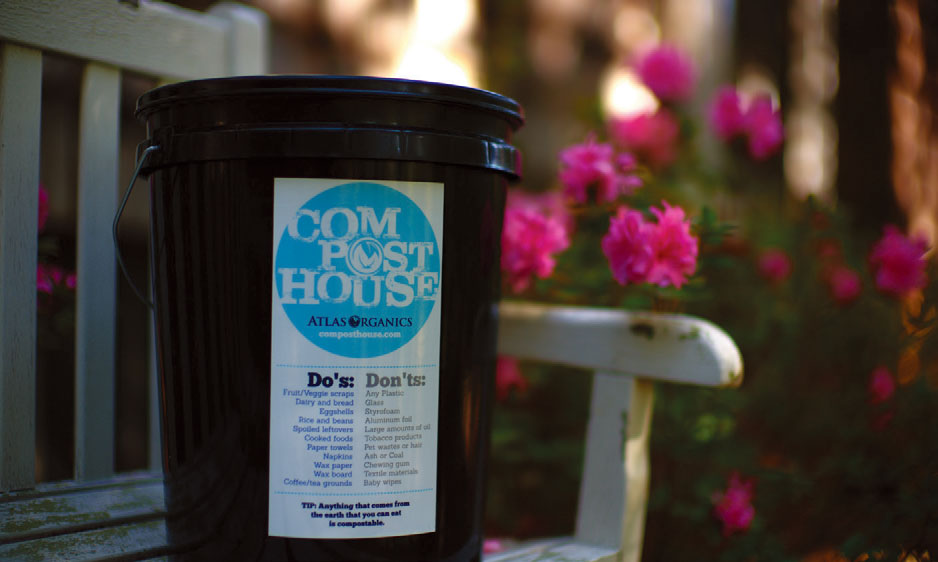The Upstate Strikes Pay Dirt
More than a few well-intentioned home gardeners have vowed to start composting, only to discover the actual process is far less glamorous than the idea of it. Compost House leaves us no more excuses.
Our backyard garden is a square plot hemmed in with splintering railroad ties. We’ve tended it for the past six summers we’ve lived in Greenville, and we’re at maybe level two of urban farming: vegetables, herbs, four hens with no names. Multiple potted plants in various life stages, 50/50 thriving or shriveled. About twice a year I talk a big game about beekeeping, but for now our honey still comes from the store.
We squeeze out a few tomatoes, a modest showing of eggplant, and lose our squash every year to vine borers (those jerks).
So I mean, of course—of course I know about dirt.
“Oh, yeah, obviously we compost, it’s so important,” I say with false authority in any gardening conversation. What my husband knows is that our compost “system” is just a pile behind the storage shed: grass clippings, last years jack-o-lantern, and eggshells. It’s ignorable and close to worthless.
Because, let’s be honest: we’re talking about collecting old food scraps in a stinky pail and then transporting it somewhere else, and I can’t be bothered to keep up with that miserable job of dumping the sad putrid mess in a pile, let alone turning and tending the trash until it’s ready to use in the garden. Did I mention the smell?
Until I heard about Compost House, that is. It’s a program for homeowners through Atlas Organics that works just like their commercial component. Which means taking food waste and transforming it into nutrient rich soil for the community. Leslie Rodgers, the coordinator and educational director for Compost House, is confident “once someone signs up and starts using our program, they see the difference and experience the amount of waste they are capable of diverting. Then they don't turn away.”
I signed up, and the next Tuesday, two Compost House buckets were waiting on our front porch. Over the next week, we stored them at our back door (though they’re the perfect under-sink size too), and filled them with vegetable trimmings, expired leftovers (even meat and bones!), and paper towels (!).I admit I was fearful of the stink, but once a bucket filled, we snapped the lid on and I didn’t have to deal with the dreaded chore of dumping it all into our backyard pile.
After a week, I set the full buckets on the front porch and later that day they were replaced with clean, empty containers. For each month of pickup, a Compost House member receives a bucket full of rich and dark finished compost, which absorbs and holds water far better than our sandy red clay soil, while adding nutrients to foster more plant growth—all natural and organic. Compost House offers a few subscription options: home pickup every week or twice a month, or members can drop off and pick up buckets at a few places around Greenville and Spartanburg.
Using Compost House, I started seeing trash in a new way. The services offered are convenient to my family, but they’re also doing so much good for our community. That stuff we don’t need, the scraps we leave behind— they all go somewhere. 40% of America’s food isn’t consumed, and this is the stuff filling our local landfills, much of which could be transformed into the rich soil for our backyard gardens and local farms.
This isn’t merely anecdotal evidence; the numbers back it up. In one year, according to Rodgers, Compost House rescued 16,175 pounds of food waste. Rodgers’ passion for making compost an easy and affordable part of the community is contagious.
Less trash and more tomatoes—it’s hard to complain about that. Welcome, Compost House.
http://www.composthouse.com Receive one free month of service with the code “edibleupcountry.”






